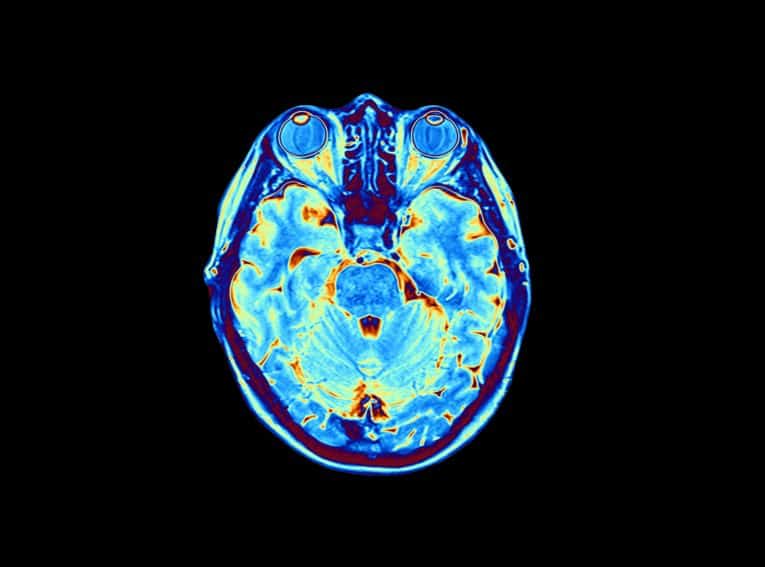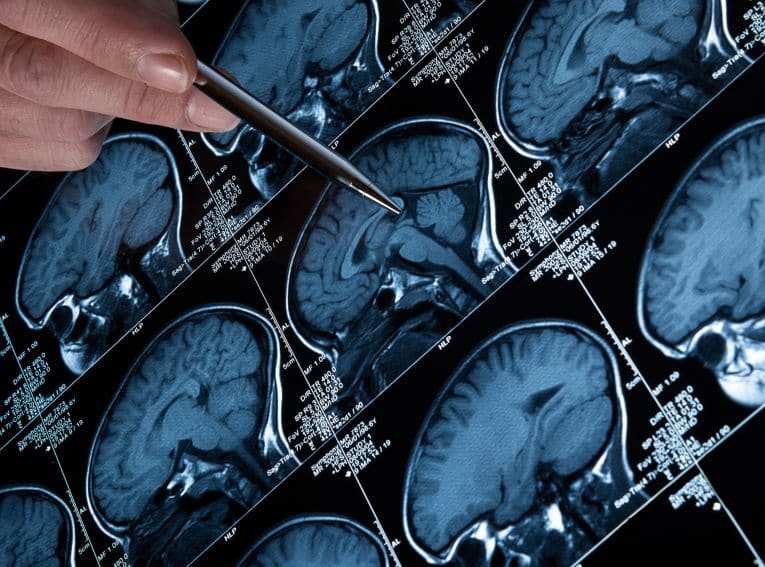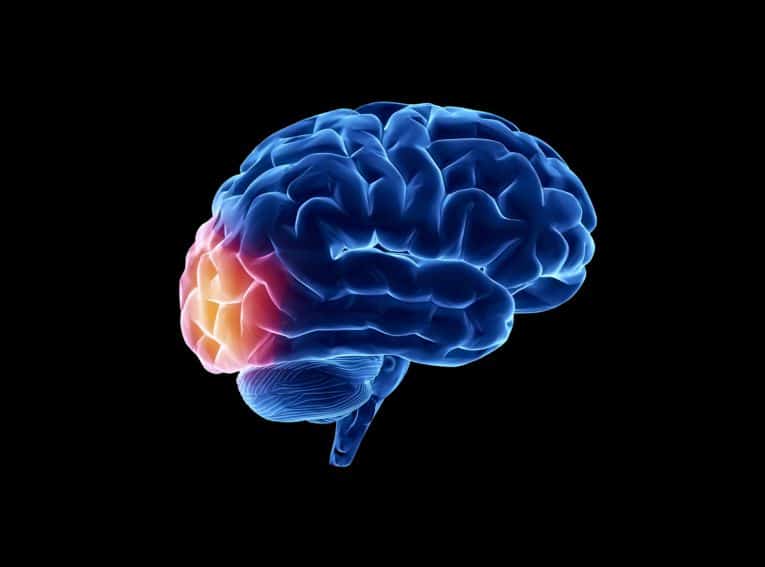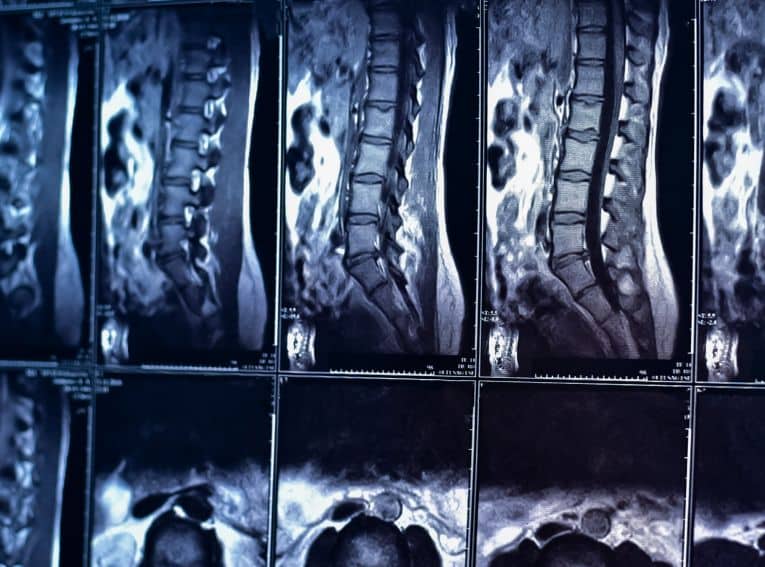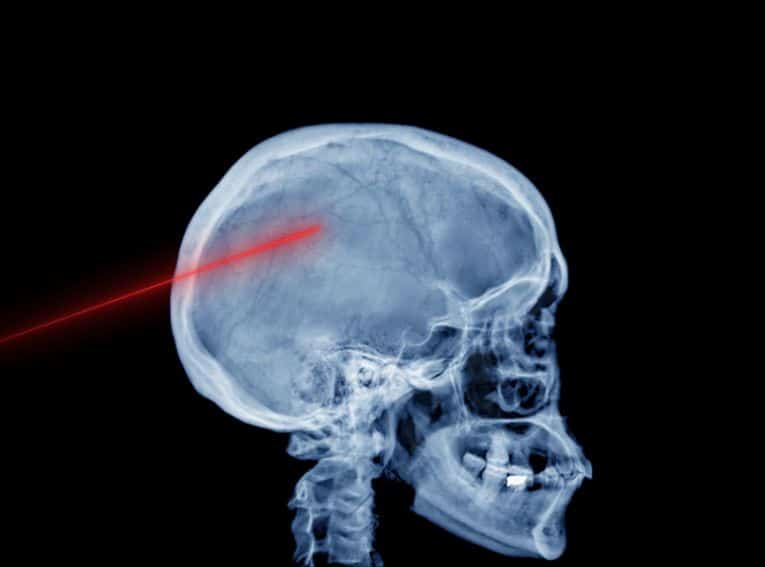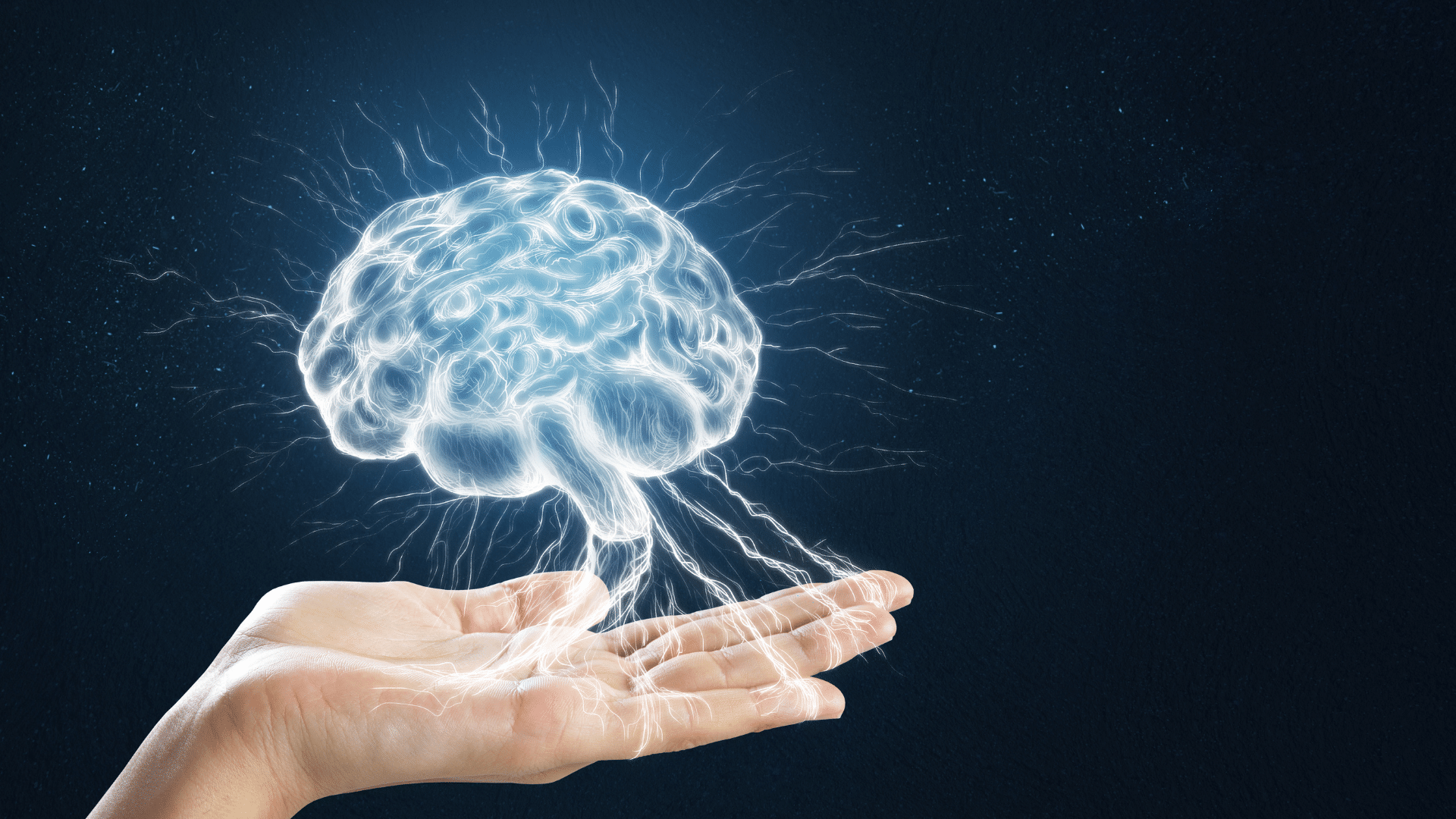
Pituitary Adenoma
A pituitary adenoma is a tumor that develops on the pituitary gland, a gland located at the base of the brain. Since the pituitary gland not only secretes several hormones, but also regulates secretions from other glands, an adenoma may affect many systems of the body. Pituitary adenomas are benign, though in rare instances they may become malignant. Treatment is usually required to ensure proper pituitary gland function and to alleviate or prevent symptoms.
Types of Pituitary Adenoma
There are several types of pituitary adenoma, based upon whether they secrete hormones and classified by size as macroadenomas or microadenomas.
Secreting Tumors
Secreting tumors, also called functioning or endocrine-active tumors, produce too much of one or more hormones. Prolactin-secreting pituitary adenomas (called prolactinomas) are the most common, and account for approximately one-third of all pituitary tumors. They typically include symptoms such as abnormal nipple discharge of milk (galactorrhea) and reproductive dysfunction.
Growth hormone-secreting tumors typically produce an enlargement of the extremities, face and soft tissues, producing a condition called acromegaly. Acromegaly can lead to health conditions such as hypertension, diabetes and cardiovascular disease.
Some secreting tumors produce more than one type of hormone, causing hyperprolactinemia, acromegaly or Cushing’s disease.
Non-functioning Tumors
Also called endocrine-inactive pituitary tumors, non-functioning tumors do not produce extra hormones. Most are large (macroadenoma), and occasionally they can invade the sinus cavity, causing nerve compression, double vision, and partial or complete pituitary failure (hypopituitarism).
Symptoms of Pituitary Adenoma
Symptoms of pituitary adenomas vary according to which hormone’s secretion is affected and on the size of the tumor and how much pressure it exerts on surrounding tissue. They also differ according to the location of the tumor and its proximity to various nerves or blood vessels. Some common symptoms of pituitary adenoma include:
- Headache, nausea, weakness
- Visual difficulties
- Mood swings or behavioral changes
- Erectile dysfunction
- Changes in weight
- Hyperthyroidism or hypothyroidism
- Cushing’s syndrome
- Acromegaly or gigantism
- Nipple discharge
- Nasal drainage or difficulties with sense of smell
Diagnosis of Pituitary Adenoma
In order to diagnose a pituitary adenoma, blood and urine tests are taken to measure hormone levels. In addition, diagnostic imaging tests, usually including a magnetic resistant imaging (MRI) scan, are administered to assess the size and location of the tumor.
Treatment of Pituitary Adenoma
Regular monitoring may be all that is needed for pituitary adenomas that are not growing or causing any symptoms. When symptoms require treatment, such treatment usually includes medication, hormone therapy, radiation therapy and possibly surgery to remove the tumor. When surgery is necessary, it is most often performed through the nasal and sinus cavities as endoscopic transphenoidal surgery. When the location or size of the tumor makes transphenoidal surgery impossible, the operation is performed as a transcranial procedure, through a surgical hole in the skull.
Even if the doctor removes all of the tumor that can be seen at the time of surgery, some patients will require radiation therapy or chemotherapy after surgery, as well as medications to replace hormones. Since the hormone imbalance resulting from the tumor or the surgery may be permanent, patients may have to receive lifelong hormone replacements.
Risks of Pituitary Adenoma
The risks of untreated pituitary adenomas and the risks of their surgical removal are similar. Because of the gland’s proximity to the optic nerve, there is a danger or blindness as a result of pressure on the nerve by the tumor or damage to the nerve during surgery. If the patient undergoes surgery, the risks common to all surgical procedures apply, including the potential for breathing problems, excessive bleeding, blood clots, post-surgical infection, and adverse reactions to anesthesia or medication.
Welcome to the office of neurosurgeon Dr. Vikas Rao, where your health comes first. Below are some of the neurosurgical treatments that we offer in Mission Viejo, CA:
Contact us today
Your concerns are important to us, and we want to make sure all of your questions are answered so you understand your options. Please contact our office with any questions, and our team will be happy to assist you.
Give us a call
We're open to serve
Our doctor and staff are devoted to our patients. Please fill out the form below with any questions or to schedule an appointment and our team will get back to you within 24 to 48 hours.
